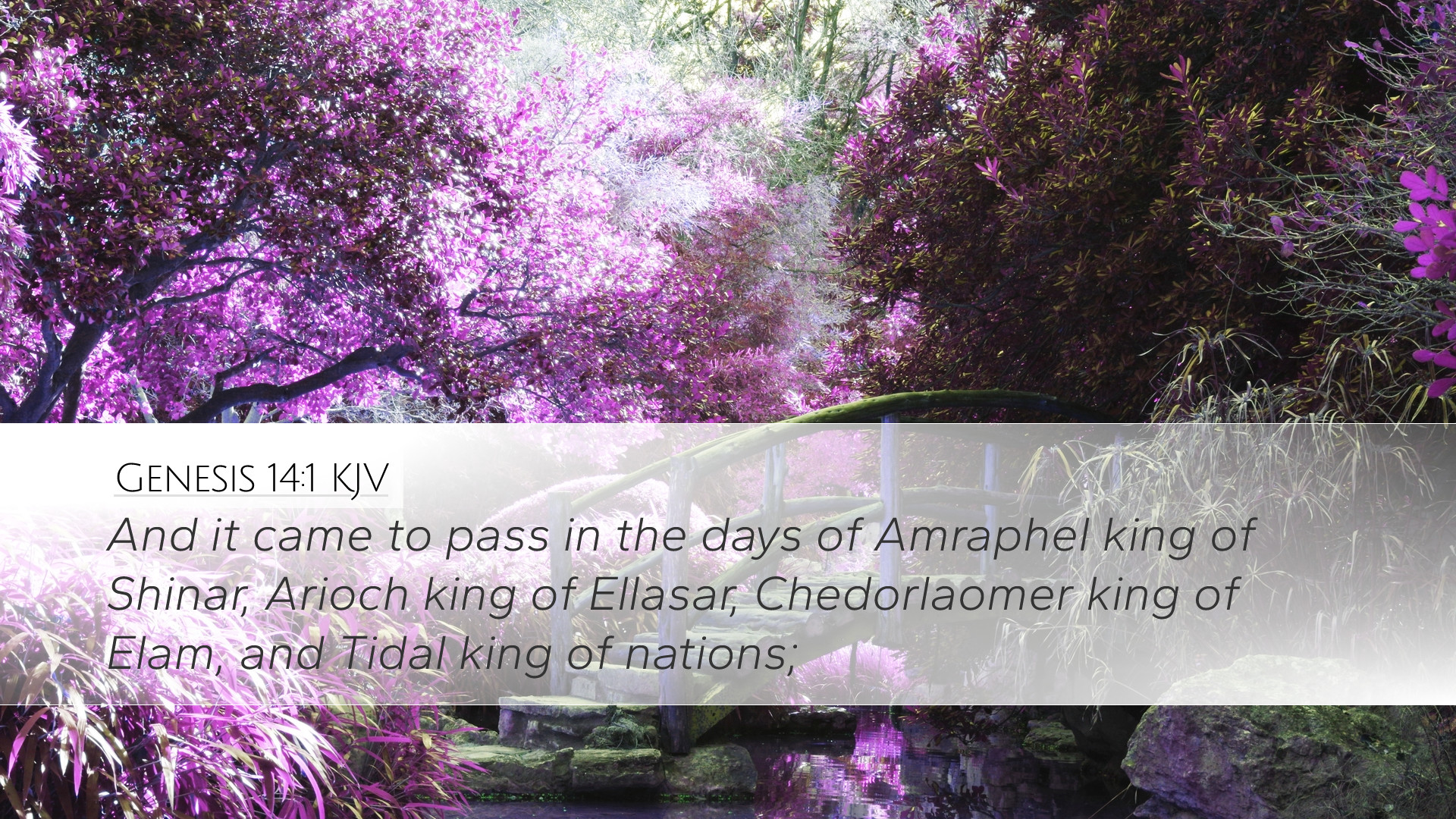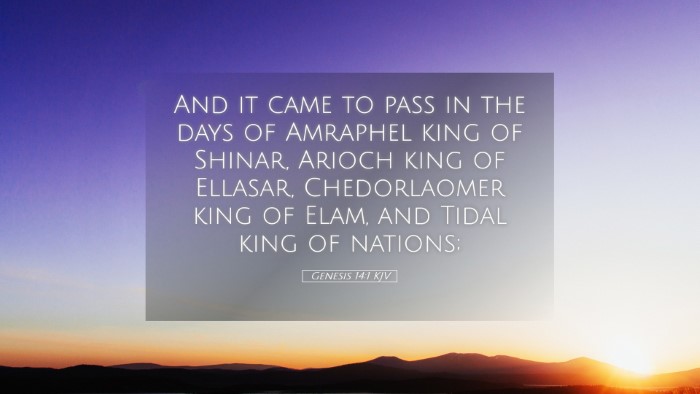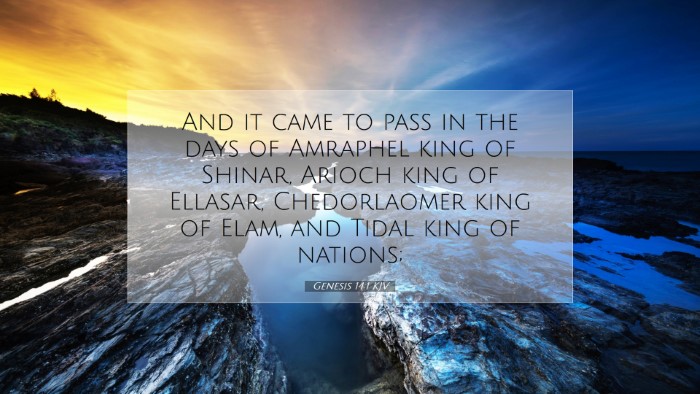Commentary on Genesis 14:1
Genesis 14:1 reads: "And it came to pass in the days of Amraphel king of Shinar, Arioch king of Ellasar, Chedorlaomer king of Elam, and Tidal king of nations."
This verse introduces a significant historical context that sets the stage for the narrative of Abraham's rescue of Lot. Scholars have noted the importance of understanding the geopolitical dynamics of the time, which reflect the broader themes of conflict, loyalty, and divine Providence throughout the scripture.
Historical Context
According to Matthew Henry, this verse marks the beginning of a notable conflict involving a coalition of kings. The mention of these kings indicates the existence of established kingdoms and notable cities, suggesting a level of civilization and governance. This reality emphasizes that the events described are not isolated spiritual occurrences, but rather intertwined with the political and social fabric of their time.
Kings and Kingdoms
-
Amraphel, king of Shinar:
Often associated with Babylon, Shinar is a region historically linked to the tower of Babel incident. The leadership of Amraphel suggests a powerful and influential figure, representative of early Babylonian authority.
-
Arioch, king of Ellasar:
The precise location of Ellasar remains debated, but Arioch symbolizes the allies that Chedorlaomer gathers. His mention indicates a network of kingdoms and alliances at play in this narrative.
-
Chedorlaomer, king of Elam:
He is often considered the central figure in this alliance. His rule over Elam posits him as a significant military power, which was influential in the region. The likely aim behind his coalition with the other kings was to assert dominance and control over surrounding territories.
-
Tidal, king of nations:
His designation as king of nations indicates a leader presiding over multiple groups. This title suggests Tidal's role in the broader political arena, reflecting themes of territorial expansion and dominance over diverse peoples.
Theological Implications
Albert Barnes notes the broader theological implications of this coalition. The tumultuous world of kings and kingdoms reflects the fallen nature of humanity and the conflicts that arise therein. The wars among nations mentioned in Genesis highlight the consequences of sin and the striving for power, a theme that resonates through the biblical narrative.
Additionally, Adam Clarke emphasizes that these historical figures and their conflicts serve as foreshadowing within the biblical narrative. They reflect God's providential care even amidst chaos. Abraham’s eventual involvement illustrates the pattern of God’s choosing of a people and his intervention on their behalf.
Application to Believers
For pastors and theologians, the historical and textual nuances in Genesis 14:1 serve as a reminder of the challenges faced by God's people throughout history. The complexities of the geopolitical environment during Abraham's time encourage believers today to trust in God's sovereignty amid chaotic and uncertain circumstances.
Students and scholars can glean from this verse an awareness of the historical context in which biblical events unfold. Understanding the characters and politics of this ancient narrative enriches modern comprehension of the scriptural text.
Reflection Points
- Consider how the conflicts initiated by the kings illustrate the human condition and the need for divine intervention.
- Reflect on how God's choosing of Abraham amidst geopolitical strife highlights the overarching narrative of redemption found throughout scripture.
- Examine how the historical context of the verse informs our understanding of God's faithfulness to His covenant people.
Conclusion
Genesis 14:1 serves not only as an introductory verse to the historical narrative surrounding Abraham but also as a profound testament to God's sovereignty in the midst of worldly chaos. The insights drawn from public domain commentaries provide a rich foundation for further exploration of this complex narrative, serving to deepen faith and understanding among pastors, scholars, and believers alike.


